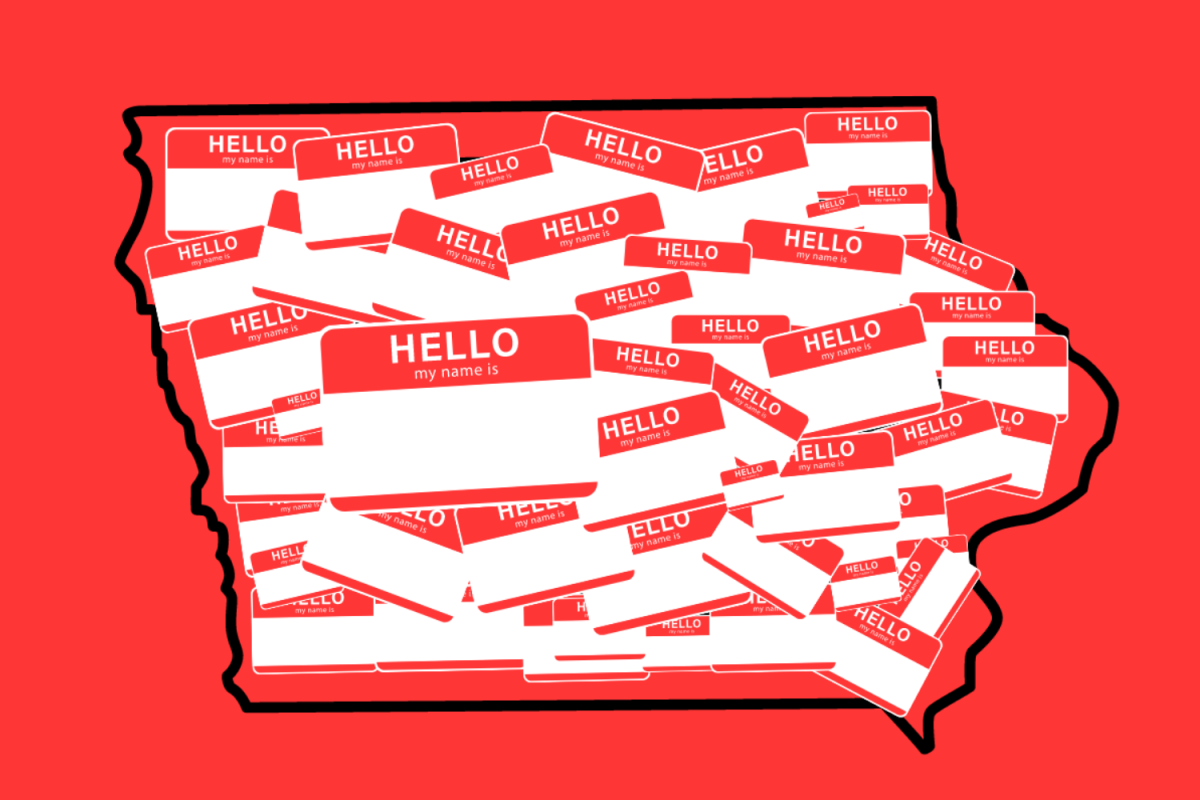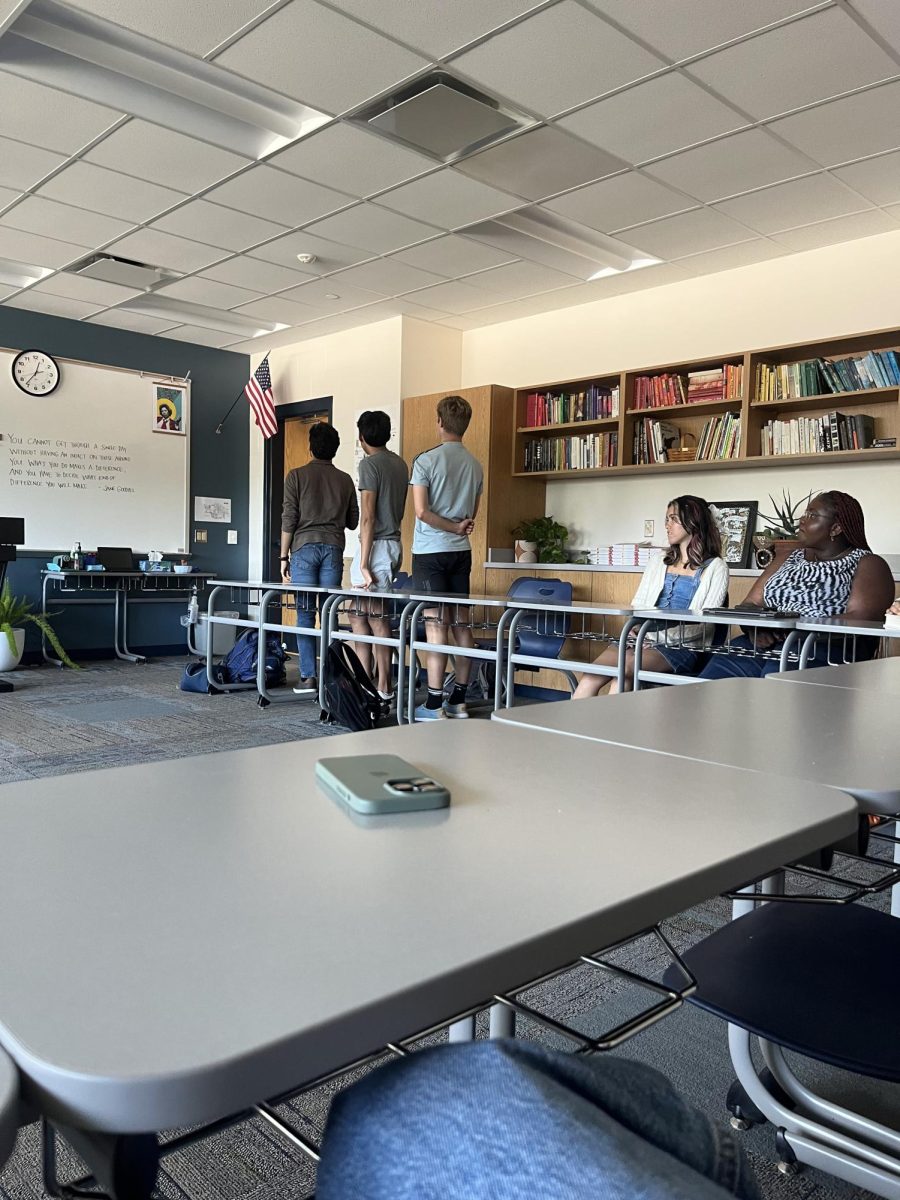On the surface, J is a bright and bubbly teenager. They bring an exuberant energy everywhere they go, and speak with levels of passion remarkable for someone of their young age. But J has a secret, and the state of Iowa wants to expose it.
“J” isn’t a name, but a pseudonym for a nonbinary high school student who chooses to remain anonymous. With friends, J uses a mix of all pronouns and a name different from the one their parents gave them.
Their family has no idea.
Under Iowa’s most recent law, Senate File 496, educators are required to tell a student’s guardian if they request to be called by a name or pronouns different from those listed in Infinite Campus.
For J, and many other students like them, this law presents a dilemma. If J uses the name they prefer at school, their parents will be notified, creating disaster for their home life. So they choose the lesser evil, using their given name and pronouns despite the discomfort of constant misgendering.
“[It hurts] every time someone uses my given name, and it’s even worse when I have to use it… I mean, I have to sign my given name and I have to say it out loud. And it’s just like, there is physical pain in my body whenever I have to hear it,” J said.
Because Pleasant Valley is a public school, the district is forced to comply with state regulations and laws. This means that even teachers who support trans and non-binary students must report them or risk losing their teaching licenses.
Psychology teacher Ann Berger isn’t afraid for her own job. “I don’t live in fear. I don’t teach from a place of fear. I don’t guide my life and my choices on fear… I think we need to understand that teachers are not the enemy here,” said Berger.
As a psychology teacher, Berger’s worries surround students’ mental health more than anything. “This is very concerning to me that we are not able to treat [LGBTQ+ students] with respect, with kindness, with care. Especially knowing these statistics on brain and mental health. They’re at risk.”
For students who are supported by their families, there is an additional process required to officially give teachers permission to call them by a different name.
Danielle Harrell’s son, Jada Shepherd, recently changed his pronouns, so Harrell experienced these new regulations firsthand. It took around a week and a half in total for all of Shepherd’s teachers to use the correct pronouns for him.
Harrell believes that conversations about students’ gender identity ultimately come down to parents respecting their children’s self-discovery. “Jada knows Jada’s soul better than anyone on this earth. I don’t know Jada better than Jada knows himself,” she explained.
Iowa’s law is simply the state’s response to the national battle over parents’ rights, which has been waged over how race, sexual identity and gender are taught in schools.
Other laws, which similarly focus on trans and nonbinary students, have been passed in states across the country. Florida’s infamous ‘Don’t Say Gay’ bill was passed in March of 2022, and several states have followed suit.
Supporters of the parents’ rights movement and recent laws claim that parents should have the ultimate authority over what, when, and how their children are taught. The laws stem from the modern belief that schools are keeping secrets and withholding information from parents about their own kids.
Another goal of SF 496 is to protect students’ mental health, especially LGBTQ+ youth, who have historically higher rates of mental illness than their peers. By alerting the guardians of these students, legislators hope they will receive the support they need.
Harrell sees it as doing the opposite for mental wellness. “The emotional needs of a child have so much to do with their gender identity being respected,” she countered.
J agrees. They have had diagnosed depression since middle school, and said they felt an improvement in this when they came out to their peers. Now, they fear their past struggles will return.
The state of education in Iowa— and America— is precarious. Teachers are leaving the profession, students are losing trust with the school system and new laws continue to be passed, disrupting the status quo.
As legislation is reviewed and implemented, Iowans have nothing to do but wait for impacts. J understands this feeling as well as anyone: “I feel like I’m walking on eggshells.”






















